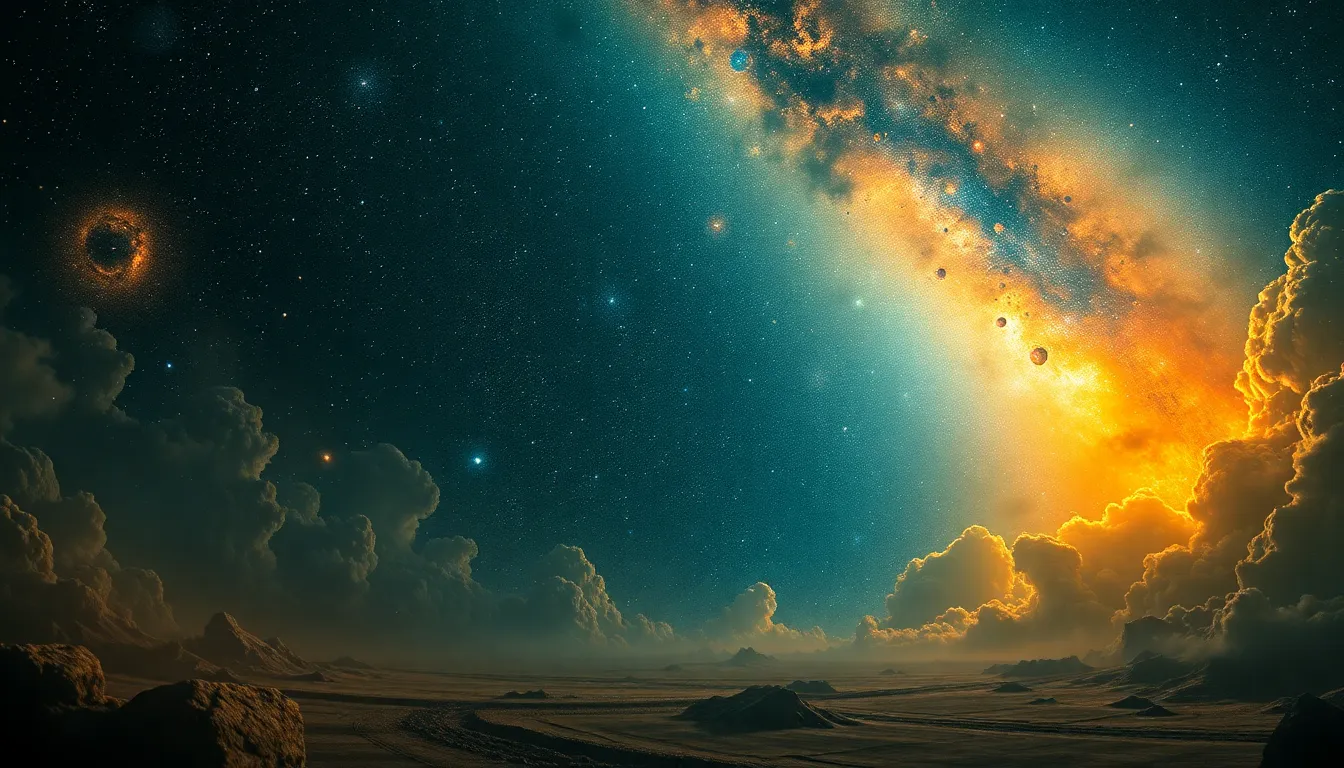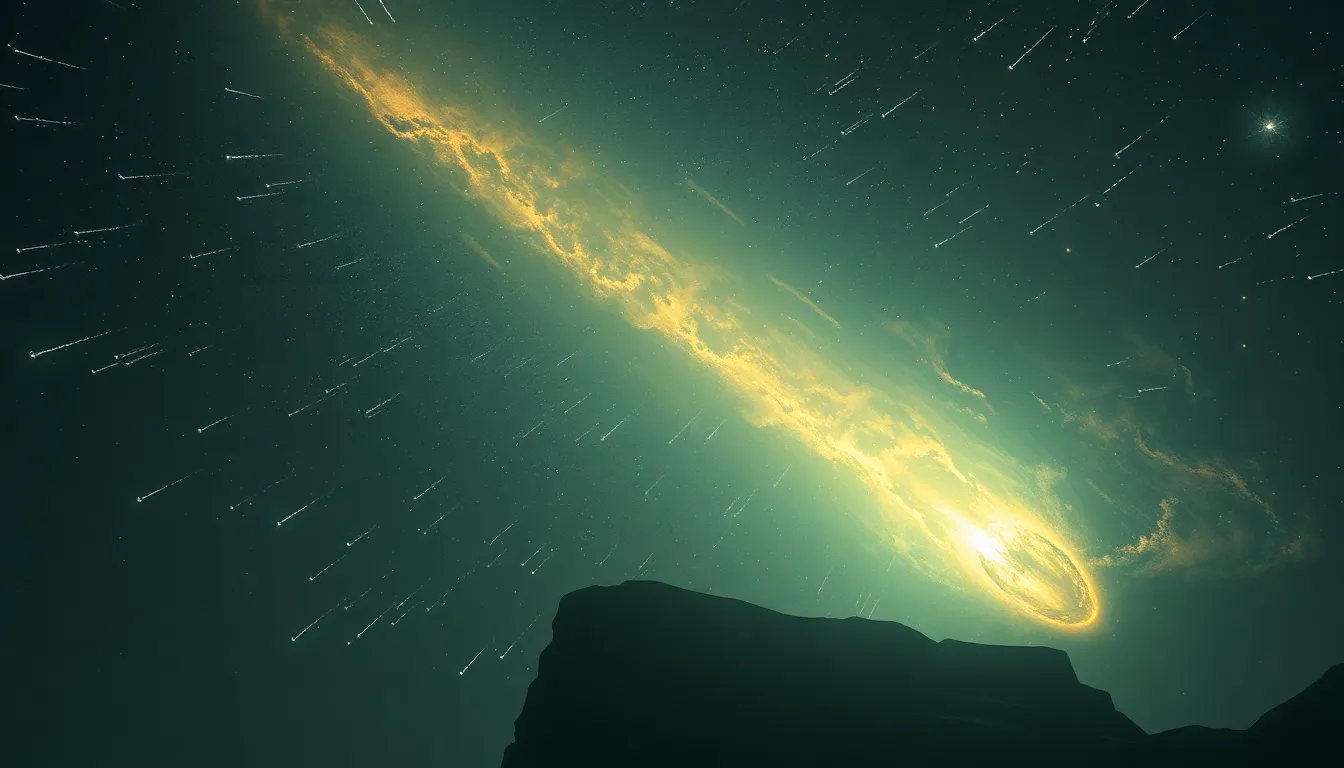How Ancient Deities Shaped Our Understanding of the Universe
I. Introduction
Ancient deities, the powerful gods and goddesses worshipped by various cultures, have played a pivotal role in shaping human understanding of the universe. These deities were not merely objects of worship; they were integral to the cultural narratives that explained the world and humanity’s place within it. Through myths, rituals, and stories, ancient civilizations sought to make sense of the natural phenomena they observed, attributing these forces to divine beings.
This article aims to explore the connections between ancient deities and our cosmological understanding. By examining the rich tapestry of creation myths, celestial associations, and the blending of science and religion, we can gain insight into how our ancestors perceived the cosmos. We will delve into various cultures, including the Greeks, Egyptians, Hindus, and Mesoamericans, to uncover the diverse pantheons that have influenced human thought.
II. The Role of Mythology in Ancient Civilizations
Mythology served as a foundational aspect of ancient civilizations, providing explanations for natural phenomena that were otherwise mysterious. These narratives were not only entertaining but essential for understanding the complexities of life.
- Function of Mythology: Myths helped explain the creation of the world, the changing seasons, and celestial events.
- Frameworks for Understanding: They established a framework for interpreting the cosmos and humanity’s role within it.
Creation myths varied widely across cultures, yet many shared common themes. For instance:
- Babylonian Enuma Elish: Describes the creation of the world from the chaos of the primordial waters.
- Hindu Cosmology: Involves the cyclical creation and destruction of the universe by the god Brahma.
- Greek Myth: The emergence of Gaia, the Earth, from Chaos, leading to the birth of the Titans and Olympian gods.
III. Deities of Creation and the Origins of the Universe
Creation deities are central figures in many mythologies, embodying the forces that brought the universe into existence. Notable examples include:
- Chaos: In Greek mythology, Chaos is the void from which all things originated.
- Brahma: In Hinduism, Brahma is the creator god responsible for the universe’s formation.
- Atum: In ancient Egyptian belief, Atum created himself and subsequently gave rise to other gods and the world.
A comparative analysis reveals fascinating insights into how these narratives influenced early scientific thought. For instance, the concept of chaos as a precursor to creation parallels modern scientific theories about the Big Bang, suggesting an early understanding of cosmic order arising from disorder.
IV. Celestial Bodies and Their Divine Representations
Ancient civilizations often associated celestial bodies with specific deities, reflecting their importance in daily life and navigation. The impact of these associations can be seen in various cultures:
- Venus and Aphrodite: The planet Venus was linked to the goddess of love and beauty in Greek mythology.
- Mars and Ares: The planet Mars, named after the god of war, influenced ancient military strategy.
The study of astrology and celestial observation was crucial in ancient societies. These associations shaped early navigation methods, agricultural practices, and religious rituals, as they believed that the movements of celestial bodies directly influenced earthly events.
V. Deities of Time and Order
The concept of time and order was often personified in various deities, reflecting the significance of cycles, seasons, and celestial events in ancient cultures. Key figures include:
- Chronos: In Greek mythology, Chronos is the personification of time, embodying the relentless passage of time.
- Janus: The Roman god of beginnings and transitions, depicted with two faces, symbolizing the duality of time.
These deities highlighted the importance of measuring time through celestial events, such as solstices and equinoxes, which were vital for agricultural societies. Understanding these cycles allowed civilizations to plan planting and harvesting, reinforcing the connection between time and the natural world.
VI. The Intersection of Science and Religion in Ancient Thought
In many ancient civilizations, priests and scholars played a crucial role in merging scientific observation with religious belief. They were often tasked with interpreting celestial phenomena and their implications for society. Case studies illustrate this intersection:
- Mesopotamia: Astronomers were also priests who tracked celestial movements to predict agricultural cycles and religious festivals.
- Egypt: The Egyptians used their understanding of astronomy to align pyramids and temples with celestial bodies, reflecting their religious beliefs.
The legacy of this intersection continues to resonate in modern scientific paradigms, as many early astronomers were motivated by a desire to understand the divine order of the universe.
VII. Cultural Variations in Deity Worship and Cosmology
Different cultures developed unique cosmologies that shaped their understanding of the universe. A comparison of Greek, Egyptian, Hindu, and Mesoamerican beliefs reveals:
- Cultural Context: Each culture’s environment and social structure influenced their cosmological views.
- Divergent Views: For instance, the Greeks emphasized rationality and individualism, while the Egyptians focused on order and continuity.
- Influence of Trade and Conquest: Cultural exchanges through trade and conquest often led to syncretism in deities and cosmological ideas.
VIII. The Decline of Deity-Centric Cosmologies
The Renaissance marked a significant shift in human thought, characterized by the rise of rationalism and scientific inquiry. This period saw:
- The Decline of Deity-Centric Cosmologies: The increasing reliance on empirical evidence diminished the role of deities in explaining the universe.
- Modern Scientific Discourse: Despite this decline, many ancient beliefs still resonate in contemporary discussions about the universe.
While deities may no longer dominate cosmological explanations, their influence persists in cultural narratives and language.
IX. The Relevance of Ancient Deities in Modern Cosmology
In conclusion, ancient deities have profoundly shaped our understanding of the universe. Their stories and representations provided frameworks for interpreting natural phenomena, fostering early scientific inquiry, and influencing cultural narratives. As we explore the cosmos today, the echoes of these ancient beliefs remind us of our shared human quest for understanding.
By studying the rich traditions of our ancestors, we can appreciate how far we have come in our comprehension of the universe while acknowledging the foundational role that ancient deities played in shaping our cosmological views.


